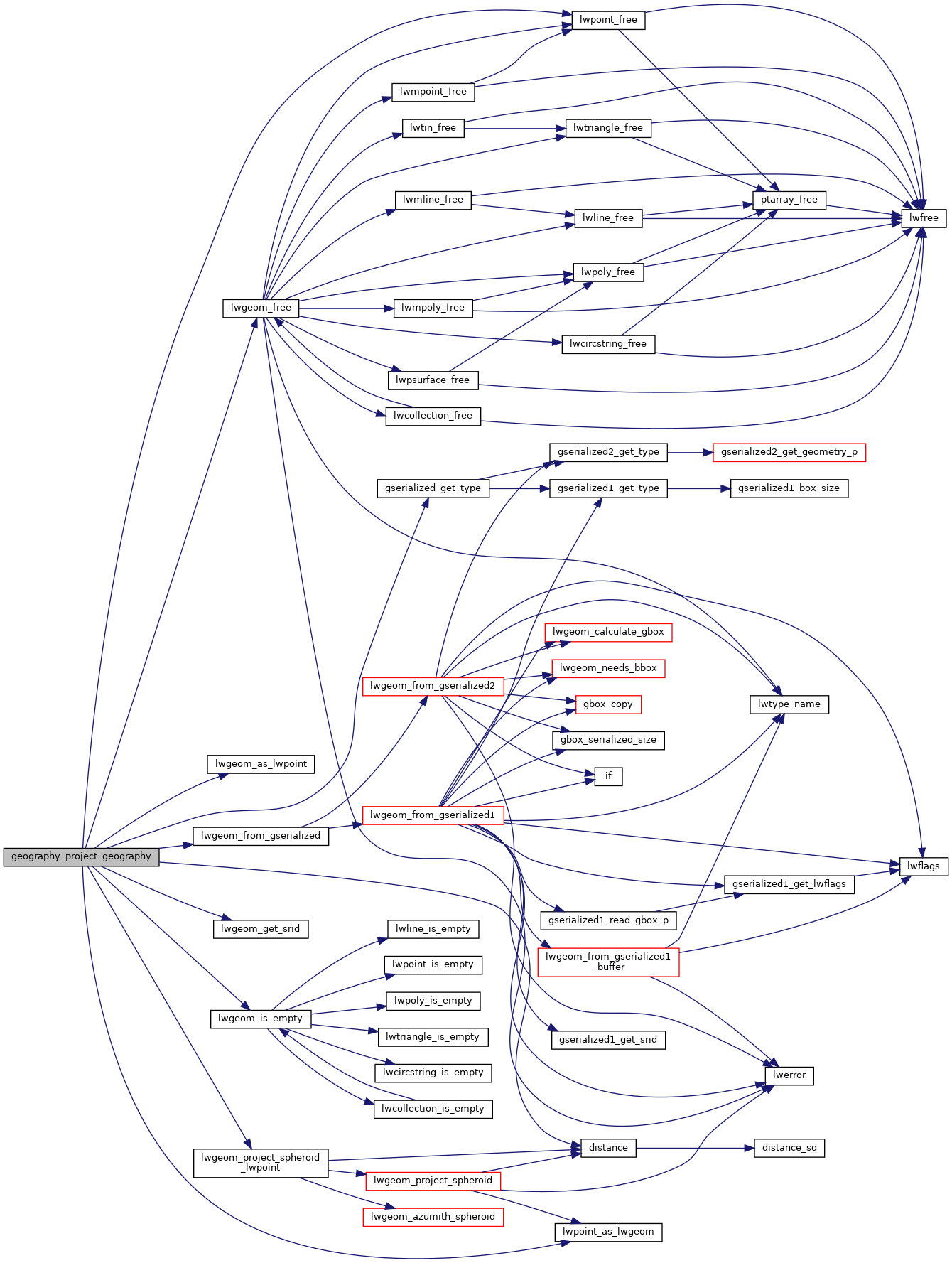◆ geography_project_geography()
| Datum geography_project_geography | ( | PG_FUNCTION_ARGS | ) |
Definition at line 1035 of file geography_measurement.c.
LWGEOM * lwgeom_from_gserialized(const GSERIALIZED *g)
Allocate a new LWGEOM from a GSERIALIZED.
Definition: gserialized.c:239
uint32_t gserialized_get_type(const GSERIALIZED *g)
Extract the geometry type from the serialized form (it hides in the anonymous data area,...
Definition: gserialized.c:89
LWPOINT * lwgeom_project_spheroid_lwpoint(const LWPOINT *from, const LWPOINT *to, const SPHEROID *spheroid, double distance)
Calculate the location of a point on a spheroid, give a start point, end point and distance.
Definition: lwgeodetic.c:2154
static int lwgeom_is_empty(const LWGEOM *geom)
Return true or false depending on whether a geometry is an "empty" geometry (no vertices members)
Definition: lwinline.h:203
Definition: liblwgeom.h:443
Definition: liblwgeom.h:457
Definition: liblwgeom.h:469
Definition: liblwgeom.h:374
References distance(), FP_EQUALS, gserialized_get_type(), lwgeom_as_lwpoint(), lwgeom_free(), lwgeom_from_gserialized(), lwgeom_get_srid(), lwgeom_is_empty(), lwgeom_project_spheroid_lwpoint(), lwpoint_as_lwgeom(), lwpoint_free(), POINTTYPE, and s.
Here is the call graph for this function:
